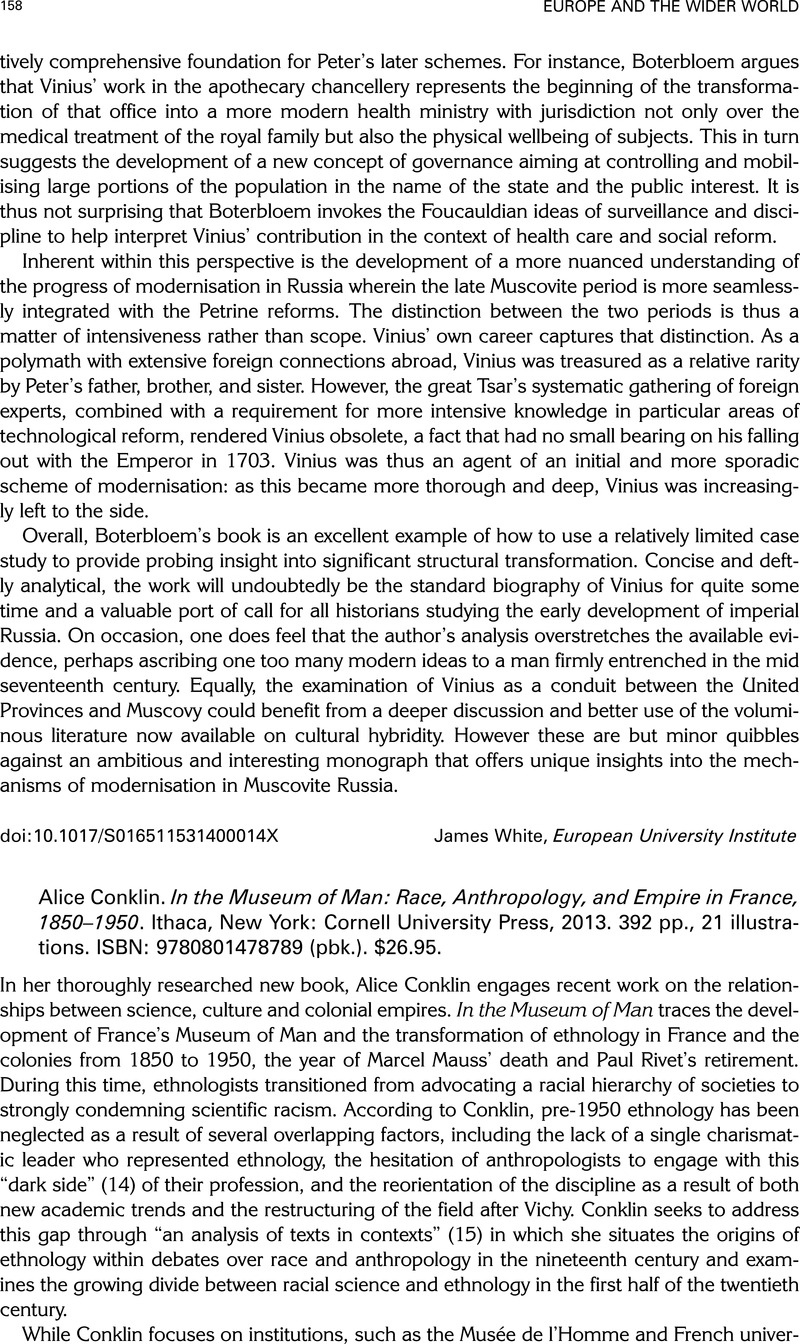No CrossRef data available.
Published online by Cambridge University Press: 01 May 2014

1 There is a large literature on social sciences and empire. See, for example, Burke, E. III (forthcoming). The Ethnographic State: France and the Invention of Modern Islam. Berkeley: University of California PressCrossRefGoogle Scholar; Lorcin, P (1996). Imperial Identities: Stereotyping, Prejudice, and Race in Colonial Algeria. London: I.B. TaurisGoogle Scholar; Prakash, G. (1999). Another Reason: Science and the Imagination of Modern India. Princeton, NJ: Princeton University PressGoogle Scholar; Segalla, S. (2009). The Moroccan Soul: French Education, Colonial Ethnology, and Muslim Resistance, 1912-1956. Lincoln, Nebraska: University of Nebraska PressGoogle Scholar; Sibeud, E. (2002). Une science impériale pour l'Afrique? La construction des saviors africanistes en France 1878-1930. Paris: EHESS EditionsGoogle Scholar; Qureshi, S. (2011). Peoples on Parade: Exhibitions, Empire, and Anthropology in Nineteenth-century Britain. Chicago: University of Chicago PressCrossRefGoogle Scholar.
2 Bruneteau, B. (2003). “L'Europe nouvelle” de Hitler: Une illusion des intellectuals de la France de Vichy. Monaco: Editions du RocherGoogle Scholar; Joly, L. (2006). Vichy dans la “solution finale.” Histoire du commissariat géneral aux questions juives, 1941-1944. Paris: GrassetGoogle Scholar; Staum, M. (2011). Nature and Nurture in French Social Sciences, 1859-1914 and Beyond. Montreal: McGill-Queens University PressGoogle Scholar.